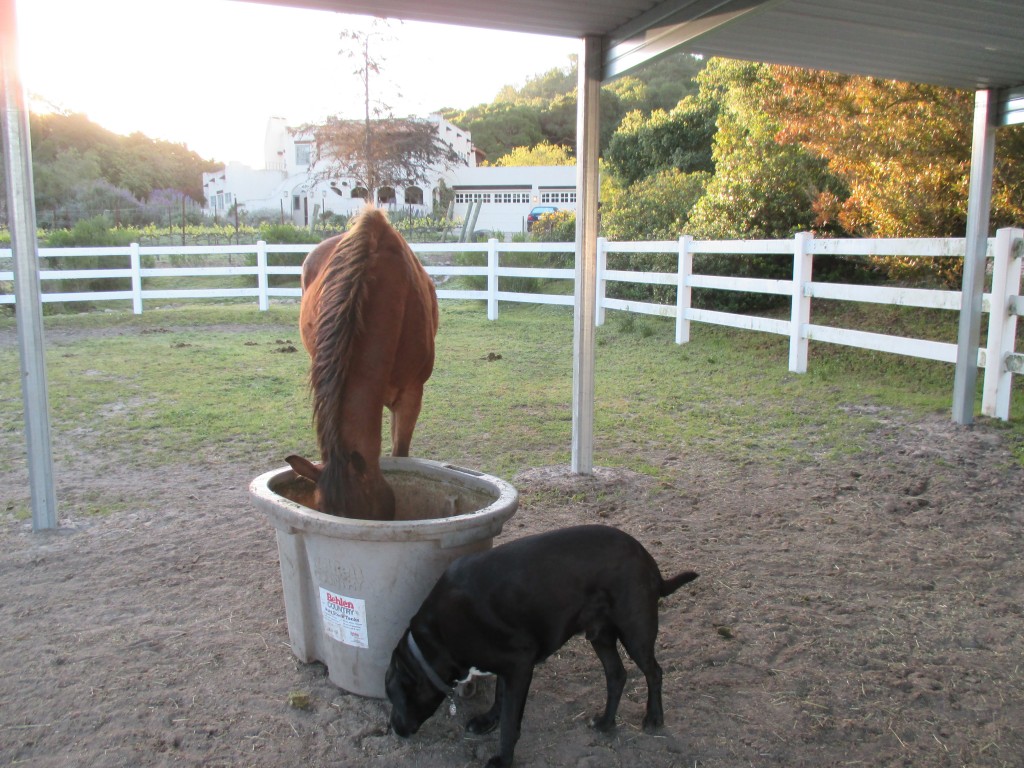
With Digger’s somewhat limited chewing power, he often drops some senior feed on the ground, and Archie is all too happy to help clean things up!
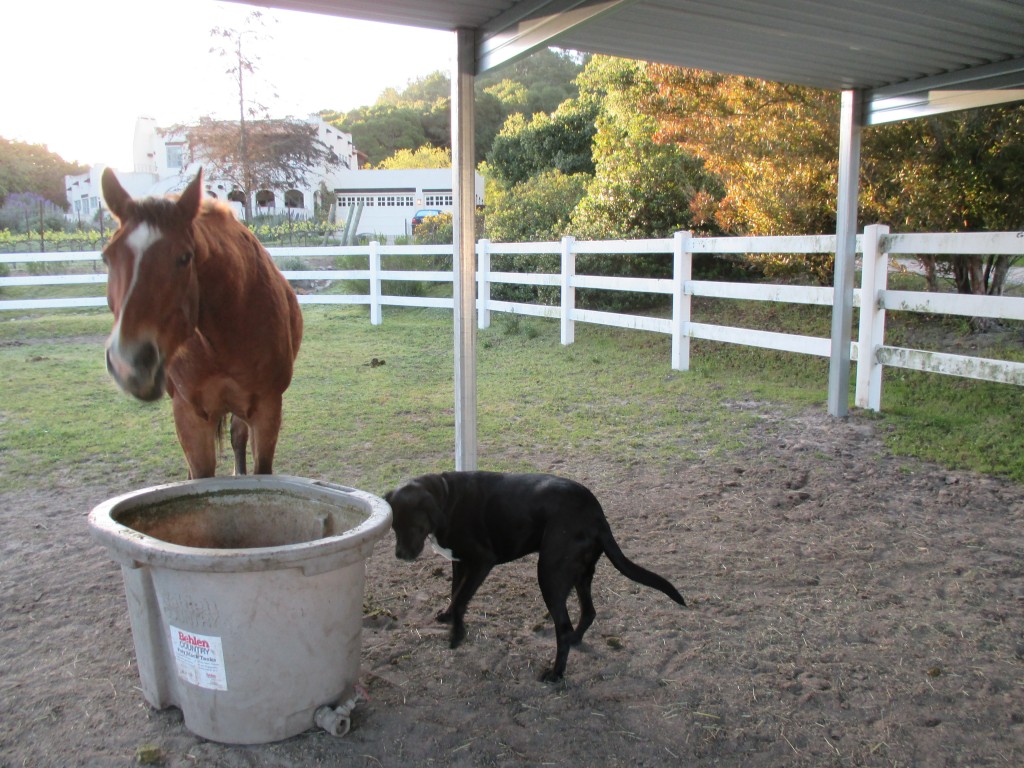
A Horse Rescue Organization
By skyranch

With Digger’s somewhat limited chewing power, he often drops some senior feed on the ground, and Archie is all too happy to help clean things up!

By skyranch
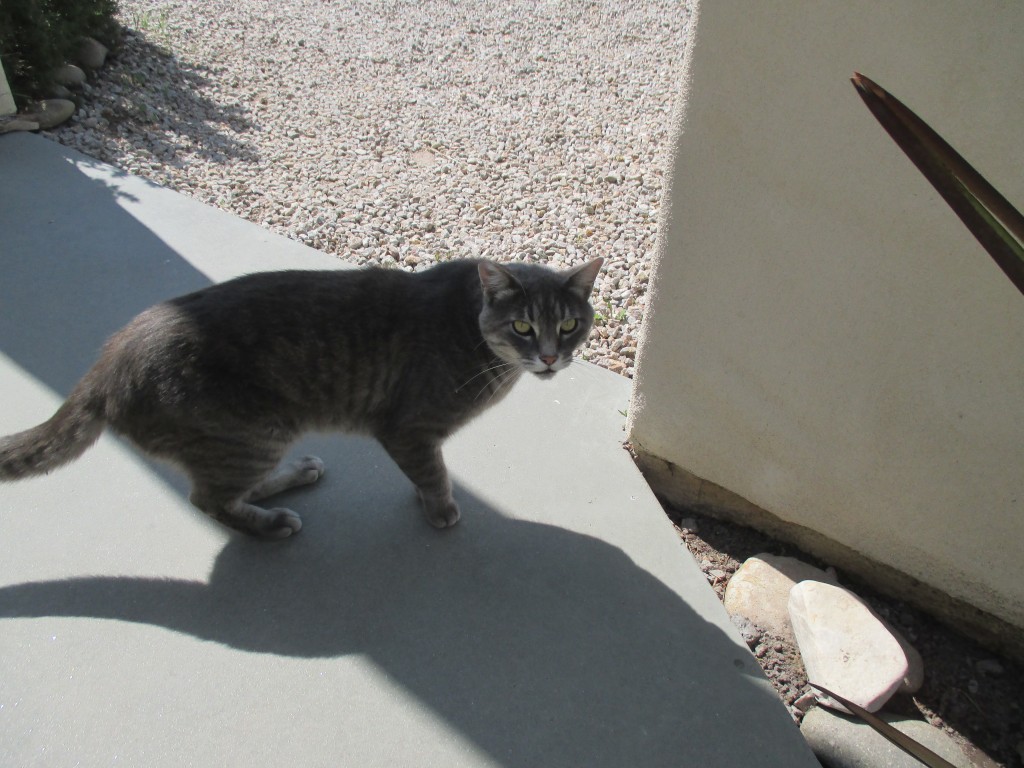
Frostie, a beloved barn cat, died last week of complications from lymphoma. Frostie was born on this ranch 10 plus years ago, to a feral mom and a stray, but tame, dad. He had five brothers and sisters and his mom, Hissie, moved the kittens from a Mercedes chassis in my husband’s shop to under the gas tank behind the house. Frostie was a handsome, leggy, silver gray tabby and he survived, and I’m sure outlived, many of the predators who would have loved to have him for lunch!
In losing Frostie, I lost a dear friend. I was his “only human:” no one else could pet him or pick him up. Most mornings he was waiting for me near the porch, appearing from out of nowhere and standing at my feet. I would pick him up, snuggle him into me, and bury my nose in his fur. Then I could listen to him purr all the way to the barn.
It was like that for us. Even though he’s gone, I catch sight of him everywhere. The heart has a different sense of reality. In a couple of weeks I’ll pick up his ashes at the animal hospital and will scatter them in one of the places where he hung out on the ranch. It will just be the two of us, like always.
By skyranch
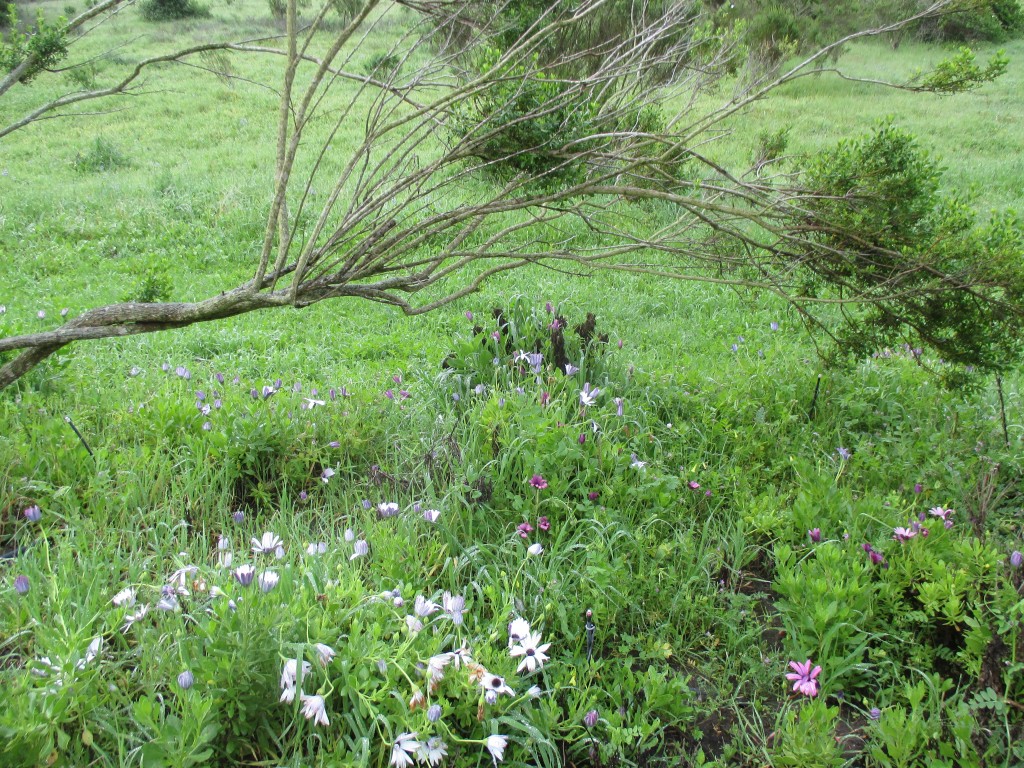
Spring can arrive with subtlety on the California Central Coast. Cold frosty nights can be followed by sunny beach days. Hard to know what to expect let alone what to wear: sweater, shorts? And rain is part of our winter weather as well as spring (though of late we’ve not had enough in either season!) But the wildflowers on the hillsides and the California poppies lining the roadsides are a dead giveaway that spring is really here.
One of the pluses, and there are many, of caring for horses, is that seeing to their needs get me outdoors…early. Too much time is spent chained to desks, planted on couches in front of the TV, hunched over in front of our computers, and whisking off here and there in our cars. Just being outside clears the head and works at something deeper inside. Maybe because our species began living outside, it refreshes us to be there. I’d like to say that I hop out of bed each day enthralled with the prospect of what lies ahead, but that’s not true. Barn chores await and all the stresses that modern living can bestow. But what is true is if I remember to breathe and glance up while I’m filling and hauling buckets and flakes of hay I can see the the shadows disappearing as the sun rises with its unique majestic glow. It always surprises me, gives me energy and at least a smidgeon of hope for getting on with my day.
Whether you celebrate Easter, Passover, or just the wonder of nature this spring, spend some time outdoors It will help.
By skyranch
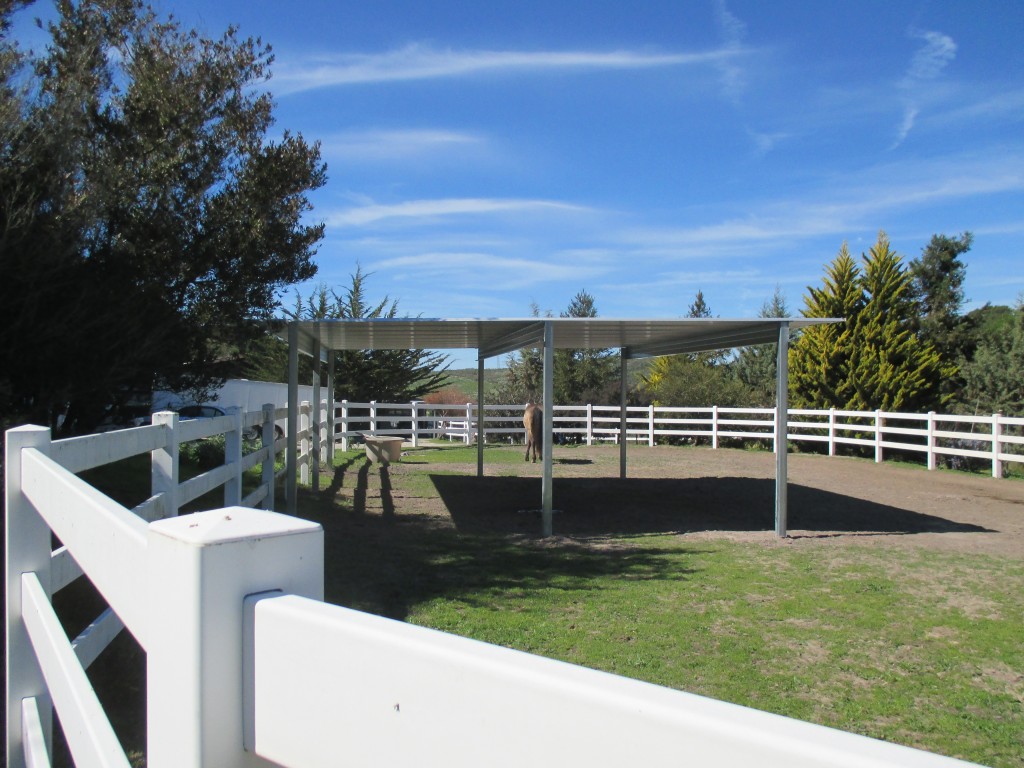
Our new shelter in the arena went up recently, and we all love it! Rain is predicted for this week-end and the timing is perfect. Before this shelter was constructed, we had to move horses around to keep everyone covered. A great addition to the Sky Ranch, and with a little additional fencing to allow each horse to eat in peace, it will give us room to add another horse. We are thrilled!
By skyranch
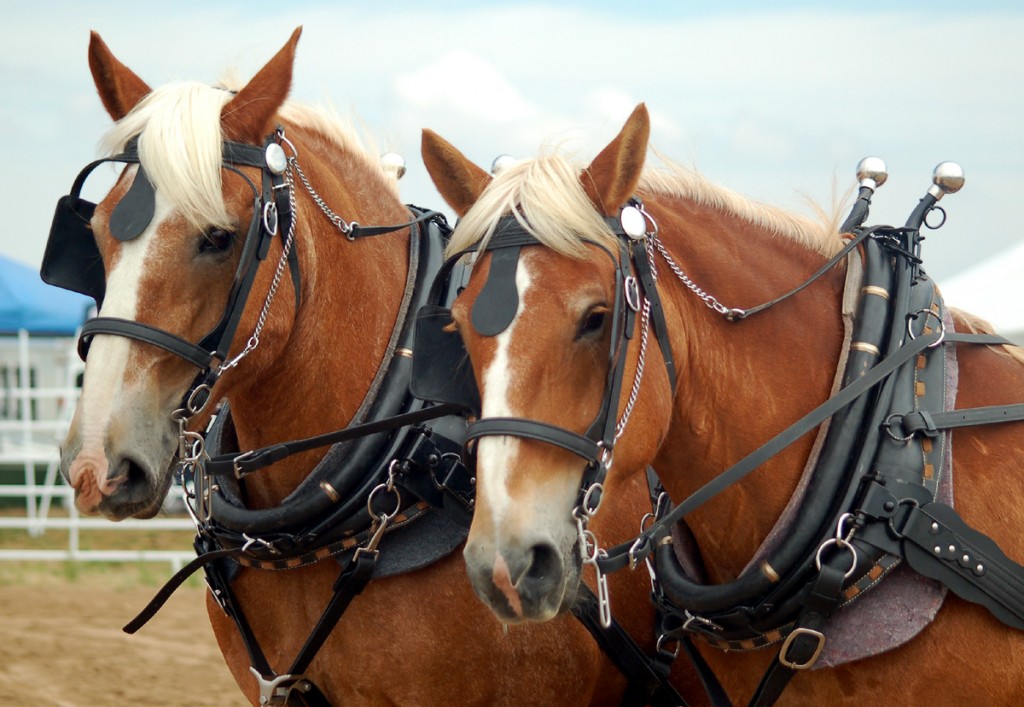 Bonnie and Belle were draft horses on my grandparents’ farm in Michigan. As a small child in the 50’s it was a great thrill to sit on them as they munched hay in the barn. They were very large, and my cousin and I probably felt like flies on their backs. They hardly seemed to notice.
Bonnie and Belle were draft horses on my grandparents’ farm in Michigan. As a small child in the 50’s it was a great thrill to sit on them as they munched hay in the barn. They were very large, and my cousin and I probably felt like flies on their backs. They hardly seemed to notice.
Though I was too young to be very discerning, I never saw anything that felt like abuse or neglect involving these stately beautiful creatures, but they were clearly not pets; they worked on the farm, pulling plows and wagons and whatever was needed to plant or harvest crops.
These years were a time of transition to mechanized farming, and Bonnie and Belle started doing less work as the tractor was used more often. My grandfather followed them with a small plow in the garden behind the farmhouse, but they were slipping into retirement as I reached my pre-teen years. And then they were gone. Sold to someone, and I never knew the details. I’m sure such sales were happening all over rural America as the tractor took over, and the use of draft horses plummeted.
In the urban environments, horses became superfluous also. In the late 19th century, every item shipped by rail needed to be collected and distributed by horses at both ends of the journey. In the 1820’s horses overtook travel by foot as the most used means of transportation in urban areas. This required tremendous numbers of horses and the horse population skyrocketed. Then in the 1890’s, the automobile became the rage and took over as the primary means of getting around the city.
The large numbers of horses used in wars, as recent as World War I, required the production of large numbers of horses. Between 1914 and 1917, about 1,000 horses were sent every day by the ship from the United States to Europe to “work” as soldiers.
World War II was the first highly mechanized war, and though large numbers of horses and mules were used as cavalry, field artillery draft animals and in supply trains, by the end of the war, mechanization eliminated much of the need for horses and mules.
The decline in the “usefulness” of horses in the United States, and in much of the rest of the world has left them with the purpose of fulfilling human’s needs for making money (horse racing) or recreation, which can include pretty serious competitions. They are not “necessary” to keep the economy afloat.
Indiscriminate breeding has lead to too many horses and too many with physical or behavioral faults that render them unsuitable for domestic use. The cost of ownership has doubled or even tripled, while the resale value has been reduced to less than half.
Though perhaps the standards of horse care have improved over the years, with more focus on humane treatment of animals in general, horses are still in peril. There are too many “unwanted horses” and not enough places for them to receive the care they deserve. Slaughter and euthanasia are not acceptable solutions. What can we do? I wish I knew the answer.